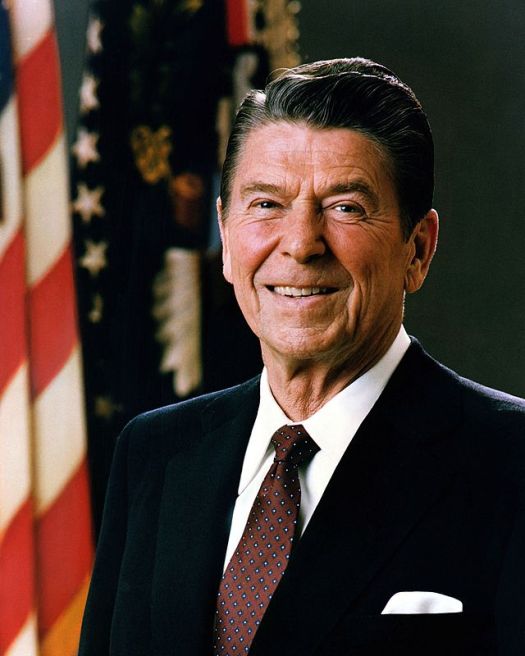‘By 1960,’ Reagan wrote, ‘I realized the real enemy wasn't Big Business, it was Big Government.’
Reagan looked, spoke, and usually behaved as if he had stepped out of a Norman Rockwell Saturday Evening Post cover from the 1950s. He actually thought like a Rockwell archetype. He had very strong, rooted, and unshakable views about a few central issues of political and national life, which he expressed in simple and homely language. He saw America as the Pilgrim Fathers had, as a ‘City on a Hill,’ as the Founding Fathers had, as the ideal republic, as Lincoln had, as ‘the last, best hope for mankind.’
Reagan replaced the doubts and indecisions of the 1970s with ‘conviction politics,’ homely ideologies based on the Judeo-Christian ethics of the Ten Commandments and the Sermon on the Mount.
The new President’s self-confidence, and confidence in America, soon communicated itself. It was not long before the American public began to sense that the dark days of the 1970s were over, and that the country was being led again. During his first term, spending increased less than under Carter. At the same time, Reagan made good his promise to cut taxes. The Economic Recovery Tax Act of 1981 included across-the-board tax reductions of 25 percent. There were other reductions in taxes on capital gains, estates, and gifts. It was followed by the Tax Reform Act of 1986. This success, together with a massive program of deregulation, acted as a potent stimulant to business. Reagan took over in January 1981 and by the beginning of 1983 the nation was in full recovery, The growth continued throughout Reagan’s second term, then into his successor’s and well into the 1990s, the longest continued expansion in American history. Inflation, which had been 12.5 percent under Carter, fell to 4.4 percent in 1988. Unemployment fell to 5.5 percent. Interest rates were down too.
The Reagan years brought solid achievements which were manifestly real even at the time. It was Reagan’s aim, from the start, to restore the confidence of ordinary Americans in themselves and in their country.

